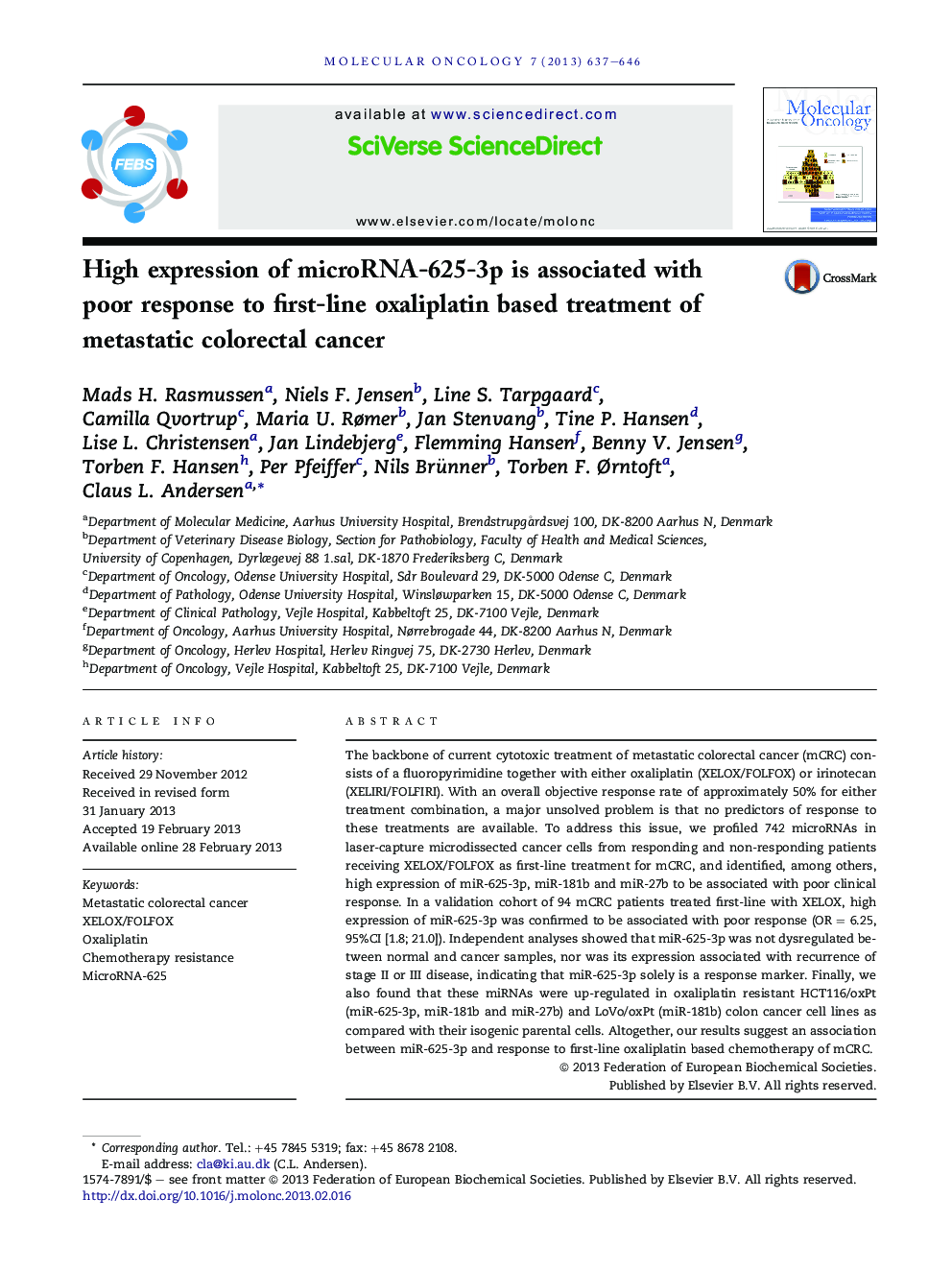| Article ID | Journal | Published Year | Pages | File Type |
|---|---|---|---|---|
| 2145729 | Molecular Oncology | 2013 | 10 Pages |
The backbone of current cytotoxic treatment of metastatic colorectal cancer (mCRC) consists of a fluoropyrimidine together with either oxaliplatin (XELOX/FOLFOX) or irinotecan (XELIRI/FOLFIRI). With an overall objective response rate of approximately 50% for either treatment combination, a major unsolved problem is that no predictors of response to these treatments are available. To address this issue, we profiled 742 microRNAs in laser-capture microdissected cancer cells from responding and non-responding patients receiving XELOX/FOLFOX as first-line treatment for mCRC, and identified, among others, high expression of miR-625-3p, miR-181b and miR-27b to be associated with poor clinical response. In a validation cohort of 94 mCRC patients treated first-line with XELOX, high expression of miR-625-3p was confirmed to be associated with poor response (OR = 6.25, 95%CI [1.8; 21.0]). Independent analyses showed that miR-625-3p was not dysregulated between normal and cancer samples, nor was its expression associated with recurrence of stage II or III disease, indicating that miR-625-3p solely is a response marker. Finally, we also found that these miRNAs were up-regulated in oxaliplatin resistant HCT116/oxPt (miR-625-3p, miR-181b and miR-27b) and LoVo/oxPt (miR-181b) colon cancer cell lines as compared with their isogenic parental cells. Altogether, our results suggest an association between miR-625-3p and response to first-line oxaliplatin based chemotherapy of mCRC.
► High miR-625-3p levels were associated with resistance to oxaliplatin based chemotherapy and a shortened overall survival. ► High miR-625-3p levels were not prognostic, but solely predictive of oxaliplatin response. ► miR-625-3p was up-regulated in an oxaliplatin resistant colon cancer cell line.
